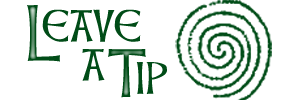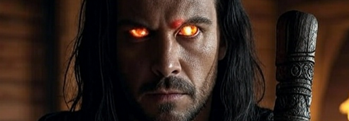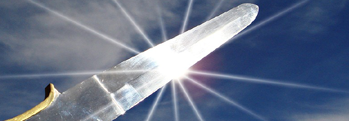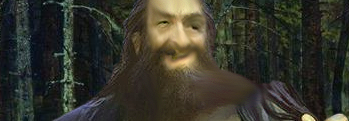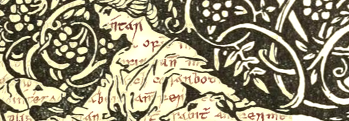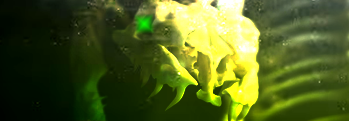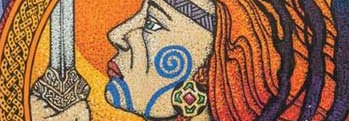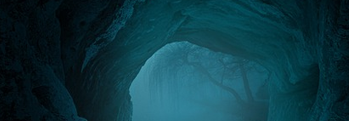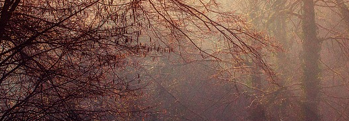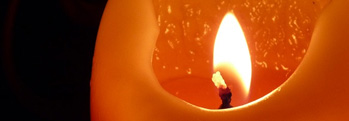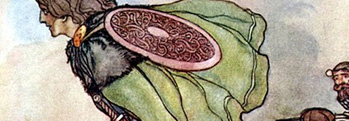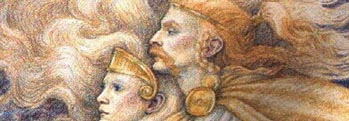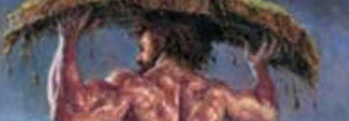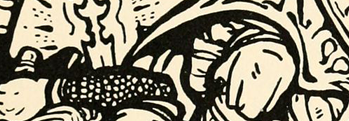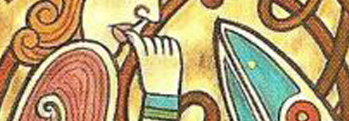Words From the Grave
Irish and Celtic myths and legends, Irish folklore and Irish fairy tales from the Fenian Cycle
Hush, woman! Do not speak to me!
 The days of the heroes of the Fianna have captured the imaginations of many throughout the ages, and one such was the ninth century poet Gofraidh Fionn O’Dalaigh, one of the finest poets in all of Killarney and all of Ireland.
The days of the heroes of the Fianna have captured the imaginations of many throughout the ages, and one such was the ninth century poet Gofraidh Fionn O’Dalaigh, one of the finest poets in all of Killarney and all of Ireland.
For it was his pen and none other that first put quill and ink to parchment and recorded the old story of Reicne Fothad Canainne, and how he met his doom.
Fionn Mac Cumhaill was not alone in being the leader of a warband in Ireland, although he was widely acknowledged as being the mightiest, he did have his rivals. One such was Fothad Canainne, lord of the men of Connacht, along with his brothers Fothad Cairptech and Fothad Airctech.
Sages have long debated the meaning of their shared name, whether it meant fotha suith, “a foundation or the first of offspring”; for they were the first children whom Fuinche bore to Macnia, or whether it instead was drawn from Fothad, meaning by stealth were they begotten by Macnia upon Fuinche the daughter of Nár son of Armair. Yet others hold the name came from Fothad, venom of fire, for they were a virulent fire in destroying other clans and races.
Their true names were written as Oendia, ‘one spirit’, the silvery, to whom wealth was most important, and Tréndia, ‘strong spirit’, he of the chariots, master of horses, and Cáindia, ‘fair spirit’, noble and ingenious. Oendia was Airctech, Trendia was Cairptech, Caindia was Fothad Canann.
The were born of one birth – Oendia at nightfall, so named for the excellence of the lucky hour. Trendia was born at midnight, called so for the strength of luck with the gods at that hour. And Caindia was born in the morning and named after morning, because of the loveliness and the beauty of the dawn.
The three Fothads of Ireland without a blemish,
three sons of Lugaid, Garrchú's son:
before the men were called Fothad,
what were their names to show them forth?
Oendia and Cáindia the champion,
and Tréndia, I hide it not:
those are—they teach renown—
the names truly of the Fothads.
Oendia was Airctech of the clans,
and Cáindia was Fothad Canann,
Tréndia was Cairptech, you see,
with the High-king
Or so the seanchaí sing.
Fothad Canainne’s warriors were well known for their dignity and the finery of their attire, as well as the terrors they inflicted upon their enemies. He delighted in demonstrating their skill by raiding upon the lands of others, and even made an enemy of the formidable Fionn Mac Chumhaill himself!
Now Fionn knew that the best way to defeat an enemy was to make him a friend, so he invited Fothad Canainne to a mead-feast to make amends and calm the waters between them.
Fothad Canainne replied that he was under a geis or magical bond not to attend without the company of “white faces”, meaning those of his men who had been slain, so Fionn in wrath killed his brother-in-law as well. The struggle continued and many warriors were slain, and so Fothad Canainne became known as one who “drank with the dead”.
Fothad Canainne was also known for his skills as a lover, and was said to have been the consort of goddesses as well as mortal woman, but woe upon him when he set his eye on the wife of Ailill Flann Bec, a war-chief as powerful as himself in Munster, with whom he was also warring!
It was said that Fothad's shape was more marvellous than that of Ailill, but Ailill's wife was more marvellous and delightful than Fothad's wife.
So a man was sent by Fothad to woo Ailill's wife and nevermind her husband. She said that she would not go with them until he should give her bride-price to her.
She set her bride-price, and not small was it, rather a bushel of gold and a bushel of silver and a bushel of white bronze. Fothad said she should have that, and she said she would take it however it was given to her.
Each man of Fothad's household had six rivets in his spear, two rivets of gold and two rivets of silver and two rivets of white bronze; and they would take three rivets out of every spear and leave three rivets in every spear, and thus three bushels would be filled with them, coming to a bushel of gold, and a bushel of silver, and a bushel of bronze.
She agreed and arranged to meet him at Claragh Mountain towards dusk.
Needless to say, when Ailill heard of this arrangement he was furiously angry, and set off with his Fian of warriors in close pursuit of his wife! He caught up with her and learned where she was to meet her lover, then he and his warriors went to meet Fothad in her place!
They met at a place called Féic near what we today call Millstreet, and there was a bloody and terrible battle since the two had sworn to kill one another, but eventually Fothad fell with his spear thrusting a mortal wound through Ailill and ruin came to all.
Later as the sun set, Ailill's wife walked to the place where she was to meet Fothad, and found his head separated from his body. Keening and mourning, she took the head to the grave site, but it began singing to her:
Hush, woman! Do not speak to me!
My thoughts are not with thee.
My thoughts are still
in the encounter at Féic.
My bloody corpse lies
by the side of the Slope of two Brinks,
my head all unwashed is
among warrior-bands in fierce slaughter.
It is blindness for anyone making a tryst
to set aside the tryst with death:
the tryst that was made at Clárach
has been kept by me in pale death.
It was destined for me —unhappy was my journey!—
at Féic my grave had been marked out;
it was ordained for me—sorrowful fight!—
to fall by warriors of another land.
'Tis not I alone who in the fulness of desires
have gone astray to meet a woman—
no reproach to thee, though it was for thy sake—
wretched is our last meeting!
I have come from afar to the tryst with thee;
there was horror upon my noble companion.
If we had known it would be thus,
it had been easy not to persist.
Men were wont to bear away gifts from Fothad
who is now on his bed of death to the very hour in which he fell:
even thus—a fight against fate!—
the slaying of Fothad is not without benefit.
The noble-faced grey-horsed warrior-band
has not betrayed me
Alas for the wonderful yew-forest
that they should go into the abode of clay!
If they had been alive,
they would have revenged their lords:
had mighty death not intervened,
this warrior-band had not been unavenged by me.
To their very end they were swift;
they strove ever for victory over their foes.
They would sing a stave—heavy their shout—
it was from a noble lord they sprang.
That was a joyous lithe-limbed band
to the very hour when they were slain:
the green-leaved forest has received them,
it was an all-fierce slaughter.
Well-armed Domnall, he of the red draught,
he was the Lug of the well-accoutred hosts:
by him in the ford—it was doom of death—
Congal the Slender fell.
The three Eogans, the three Flanns,
they were renowned outlaws;
four men fell by each of them,
it was not a coward's portion.
Swiftly Cú Domna reached us,
making for his name-sake:
on the hill of the encounter
the body of Flann the Little will be found.
Thou wilt find
—a ready union—
it is hard for Conchobar!
a hard fall that was of Eogan the Red's
to the north-east of the river.
With him where his bloody bed is
thou wilt find eight men:
though we thought them feeble,
the leavings of the weapon of Mugairne's son.
Not feebly fights Falbe Flann,
the play of his spear-strings withers the host;
Fercorb of radiant body leapt upon the field
and dealt seven murderous blows.
The combat of Mugarn with Mugna,—
two brave whelps were they;
if the puissant Fian had not come to them,
their contest had been dour.
It casts every tribe into dread,
the fair brood of staunch Falbe the Red:
before all the rest our two cup-bearers
perished by each other's hand.
O great distress from lack of drink,
the parting for ever from copious plenty!
I thought thou wouldst have come to me,
though thou hadst not promised the Fian.
Front to front twelve warriors
stood against me in mutual fight:
not one of them all remains
that I did not leave in slaughter.
Thereupon we exchanged spears,
I and Ailill, Eogan's son:
we both of us perished thereof—
Oh, the fierceness of these two stout thrusts!
we perished mutually, though it was senseless;
it was the encounter of two heroes.
Do not wait for the terror of night
on the battle-field among the resting-places of the hosts;
one should not hold converse with a dead man,
betake thee to thy house, carry my spoils with thee!
Everyone will tell thee
that it was not the raiment of a churl:
a crimson cloak and a white tunic,
a belt of silver, no paltry work.
My five-pronged spear, a lance with venom,
whose slaughters were many;
a shield with five circles, with a boss of bronze,
by which they used to swear binding oaths.
The white cup of my cup-bearer,
a shining gem, will glitter before thee;
my golden finger-ring, my bracelets, treasures without a flaw,
Nia Nár brought them across the sea.
Cáilte's brooch, a pin with luck,
it was one of his marvellous treasures:
two heads of silver round a head of gold,
it is a good piece, though it is small.
Quickly unclasp it—there was the end of blood-shedding!—
the bronze coil around my neck:
all this—they are noble spoils—
is in the place where I fell on my side.
My fidchell-board, no mean treasure,
is thine; take it with thee!
Noble blood drips upon its rim,
it is not far hence where it lies.
Many a body of the spear-armed hosts lies
here and there around its crimson wood:
the dense bush of the ruddy oak-wood conceals it
by the side of the grave north-west.
As thou carefully searchest for it,
thou shouldst not speak much:
earth never covered
anything so marvellous as it.
One half of its figures are yellow gold,
the others are white bronze;
its woof is of pearl;
it is the wonder of smiths how it was wrought.
Four candle -sticks, a white light,
not feebly do they illumine its board;
grease in their fire, no false story,
The bag for its figures—'tis a marvel of a story—
its rim is embroidered with gold;
the master-smith has left a lock upon it
which no ignorant person can open.
A four-cornered casket—it is tiny—
it has been made of coils of red gold;
one hundred ounces of white bronze
have been put into it firmly.
For it is of a coil of firm red gold,
Dínoll the gold-smith brought it over the sea;
even one of its clasps only
has been priced at seven lay-women.
Memories describe it
as one of Turbe's master-works:
in the time of Art,—he was a luxurious king,—
'tis then Turbe, lord of many herds, made it.
Many a skirmish has been fought about it
by the king of the Romans in Latium;
after a banquet of wine,—'twas an intoxicating drink,—
'tis then it was revealed to Find.
Smiths never made any work
to which it can be compared;
earth never has hidden
with a king a jewel that is so marvellous.
If thou be cunning as to its price,
'tis plain to me thy children will not be miserable;
if thou hoard it, a close treasure,
no race of thine will be in want.
There are around us here and there
many spoils whose luck is famous;
horrible are the huge entrails
which the Mórrígan washes.
She has come to us from the edge of a pillar,
'tis she who has egged us on;
many are the spoils she washes,
horrible the hateful laugh she laughs.
She has flung her mane over her back,
a stout heart that hates her;
though it is near us here where she is,
let not fear attack thy shape.
If hitherto I have been in peril,
fair was the aspect under which we parted.
I shall now part from all that is human,
in the morning after the band of youths.
Go to thy house, do not stay here,
the end of the night is at hand.
Some one will at all times remember
the reicne of Fothad Canainne;
my discourse with thee shall not be unrenowned,
if thou consider my bequest.
Since my grave will be frequented,
be placed, a conspicuous tomb;
no loss of labour thou seest
from thy trouble after thy love.
My riddled body must part from thee awhile,
my soul to be tortured by the black demon.
Save for the worship of Heaven's King,
love of this world is folly.
It is the dusky ousel that laughs
a greeting to all the faithful:
my speech, my shape are spectral—
hush, woman, do not speak to me!
Claragh Mountain is mapped below!
More Legends from the Fenian Cycle
Mongán mac Fíachnai was a prince of the Gaels, none other than he whose father was Fíachnae mac Báetáin, and it was about the seventh century in Ireland when he ruled over Ulster. Many are the tales told of him and his royal reign, with some even whispering that he was the son of Manannán mac Lir, ancient G ... [more]
The Corleck stone head is believed to be an ancient pagan idol, representing perhaps some ancestor or deity from the pre-Christian era in Ireland. The most striking aspect of the Corleck stone head is its three faces, set in strange, almost unsettling expressions, all the more remarkable for their simplicity of design, lacking ears or detailed feat ... [more]
The Clonoura shield was discovered standing upright in a bog in Clonoura, county Tipperary and represents one of the very few fully intact Iron Age shields that have ever been found. It is marked with many slash and stab scars from knives, swords, spears and other sharp weapons, and dates from 30 to 60 AD, pre-Christian Iron Age Ireland. It is q ... [more]
The days of the heroes of the Fianna have captured the imaginations of many throughout the ages, and one such was the ninth century poet Gofraidh Fionn O’Dalaigh, one of the finest poets in all of Killarney and all of Ireland. For it was his pen and none other that first put quill and ink to parchment and recorded the old story of Reicne F ... [more]
It was a fine day in Ireland many years ago when Fionn and his Fianna took a fancy to go out hunting. Warm was the sun amid the whispering glades of ancient forests, gentle was the breeze and sweet the scent of summer flowers in its bosom. Sweeter yet was the sight of a mighty deer to the eyes of the hunters, and so they gave chase, howling with de ... [more]
It was in the days of Fionn and the Fianna, a very long time ago in Ireland, that the people of Ben Edair decided to hold a festival, a Feis or Aonach, to celebrate the season. All of Fionn’s hosts were gathered, the seven ordinary warbands and the seven extraordinary warbands, and they danced and played music merrily with the people. Then ... [more]
There are few these days who have not heard of Fionn Mac Cumhaill, hero and defender of Ireland, or at least might recognise his name. But there were no creatures that Fionn loved amongst his three hundred dogs more than his two favourites, Bran and Sceolan, meaning Raven and Survivor, and though it’s a stranger story than most, this is the t ... [more]
It is not unusual for stories in the Irish legendarium to have more than one meaning besides that of a literal recounting of historical events, whether by accident or by design. Some tales were meant to be understood in the context of the era and culture of the story teller, while others might instruct in certain arts, and yet others contain myster ... [more]
Those monks who recorded the mythologies and folklore of Ireland which had previously been passed down by word of mouth from bard to druid to bard for countless generations were, by their very nature, devout Christians. As Christians they were dedicated to not only God and His Church, but to the people who bore and nurtured them, and everywhere the ... [more]
One day Fionn Mac Cumhaill, doughty hero of Ireland, and his friends Goll, Cialta and Oscar, as well as others of the Fianna, were resting after the hunt on a certain long hill now known by a different name. Their meal was being made ready, when what should happen only a girl of the kin of the giants came striding up and sat down among them, a grea ... [more]
Something which often appears in the most ancient tales of Ireland is the grisly vision of heads which speak after being separated from their bodies! This was said to be an art of the druids inherited from the necromancy of the Dé Danann, who were themselves said to be able to raise a whole army from the grave to fight again day after day! ... [more]
There once was a young fellow called Conall, and he lived with his parents in the east of the country. They lived a quiet life, catching fish and digging up oysters for meat and lamps, but one dark day the Fomors came and demanded tribute. Having none to give, his father bid the sea demons begone, but instead they made to take himself and his famil ... [more]
Young Fionn Mac Cumhaill was out walking with his dog Bran one fine morning, and he happened to pass into a deep and thick dark wood of the kind that once covered all of Ireland, for the hunting was better there, when what did he come across but a thousand horses hauling timber and men chopping down the trees and preparing the logs. "What a ... [more]
There was a mighty warrior in the west of Eriu, and Cumhal Mac Art was his name. Feared was his axe and he could skewer two men with a single cast of his feathered war-dart, and yet for all that he lived a lonely life, and a life of fear – for it had been foretold that should he ever marry, he would die in battle the very next day! But all ... [more]
It was in the day of Fionn Mac Cumhaill when he was an old man, yet still hale and hearty, that one of his warriors, whose name was Diarmaid son of Donn and grandson of Duibne, had carried off his young bride-to-be, Gráinne daughter of Cormac! The two had fallen in love and Gráinne, for all of Fionn's fame, wanted nothing to do wi ... [more]
One warm summer's day Fionn and his men were out hunting through the darkling forests of Ballachgowan in Munster, chasing deer and boar through the gloomy glades, when they stopped short all of a sudden and came face to face with a startling sight! For what had stepped between them and their prey but a strange, damp giant of a man. Black wer ... [more]
Fionn Mac Cumhaill stood at the door of his hunting lodge with his fists on his hips, his heart sinking as he realised his intentions to hunt for deer this day were lost in the waves of mist and fog that had rolled in from Dublin bay, although at that time it was known by a different name. It had come as far inland as Gleann na Smol, the Glen of th ... [more]
When Fionn Mac Cumhaill became leader of the Fianna, the fiercest and most warlike of those bands of heroes who lived in the wild places, hunting and acting as champions for their kings, and defending Ireland from evil, he decided that he wished to have only the best warriors to follow him. So he sat down and sucked his thumb to taste the wisdom ... [more]
Close by where Limerick city stands today lie the ruins of an ancient and once mighty fortress called Carrigogunnel, which commanded all the lands about with a stern hand. It was known then as a place of ill omen, and it is known today as the same, for it was once the home of an uncanny hag by the name of Gráinne. Amid the surrounding mar ... [more]
A dark horde of fell-handed warriors approached Ireland, sails gathered off the coast like storm clouds, billowing out in the gusts of uncertain wind, while oars bent to the rolling thunder of drums. Fierce indeed was the host of King Colgan, master of Lochlainn, and he came to make war on Cormac Mac Airt, High King of Ireland! As soon as Fionn ... [more]
Diarmuid the Fair, son of Donn or Duibhne of the Tuatha De Danann was one of the Fianna, the great warriors of ancient Ireland who protected the land from dangers near and far. It was said that no woman could resist his gaze, for he'd been granted the blessing of comeliness by the Ghost Queen Morrigan after he helped her out of a spot of bother ... [more]
Fionn Mac Cumhaill and the rest of the Fianna were resting after a great battle, weary and sore with sorrow at the loss of their fellows, when they spied coming along the shores of Loch Lein in County Kerry a beautiful young woman riding a swift horse, so swift indeed that its hooves scarcely seemed to touch the ground! Now although the women of ... [more]
Now it is known by some that the fairies of Ireland weren't much like the fairies we hear about in these latter days, harmless things of mischief and frolic, but were instead respected and often feared, for their anger was quick and their kindness was whimsical. Some would join men in battle, and some would make war on men, others were omens of ... [more]
It was a fine brisk spring morning in Ireland when Fionn Mac Cumhaill decided to take himself for a stroll along the white sandy beaches of the seashore, the better to breathe the air and enjoy the simple pleasures life had to offer. But that morning, life had more to offer and it didn't look pleasant, for it was a giant bearing down on the bea ... [more]
Fionn MacCumhaill was well known as a fair and handsome man, but his most distinguishing feature was his grey hair - and he was not born with it! Fionn was one time out on the green of Almhuin, and he saw what had the appearance of a grey fawn running across the plain. He called and whistled to his hounds then, but neither hound nor man heard hi ... [more]
After his seven years of training with the poet Finegas were done, Fionn Mac Cumhaill took himself from the river Boyne to the great hall of the High King in Tara, Conn of the Hundred Battles, to present himself there as a member of the Fianna, the very best of the best warriors throughout Ireland. Announcing himself, Conn took him into the band an ... [more]
Here is the story of how Fionn MacCumhaill gained the knowledge of the world. And wouldn't it be a great thing to know it all? Still, knowledge and wisdom must be balanced, and this was known to the young man called Fionn, which means fair and bright. He was fleeing from the warriors who had murdered his father when he came upon the hiding plac ... [more]


